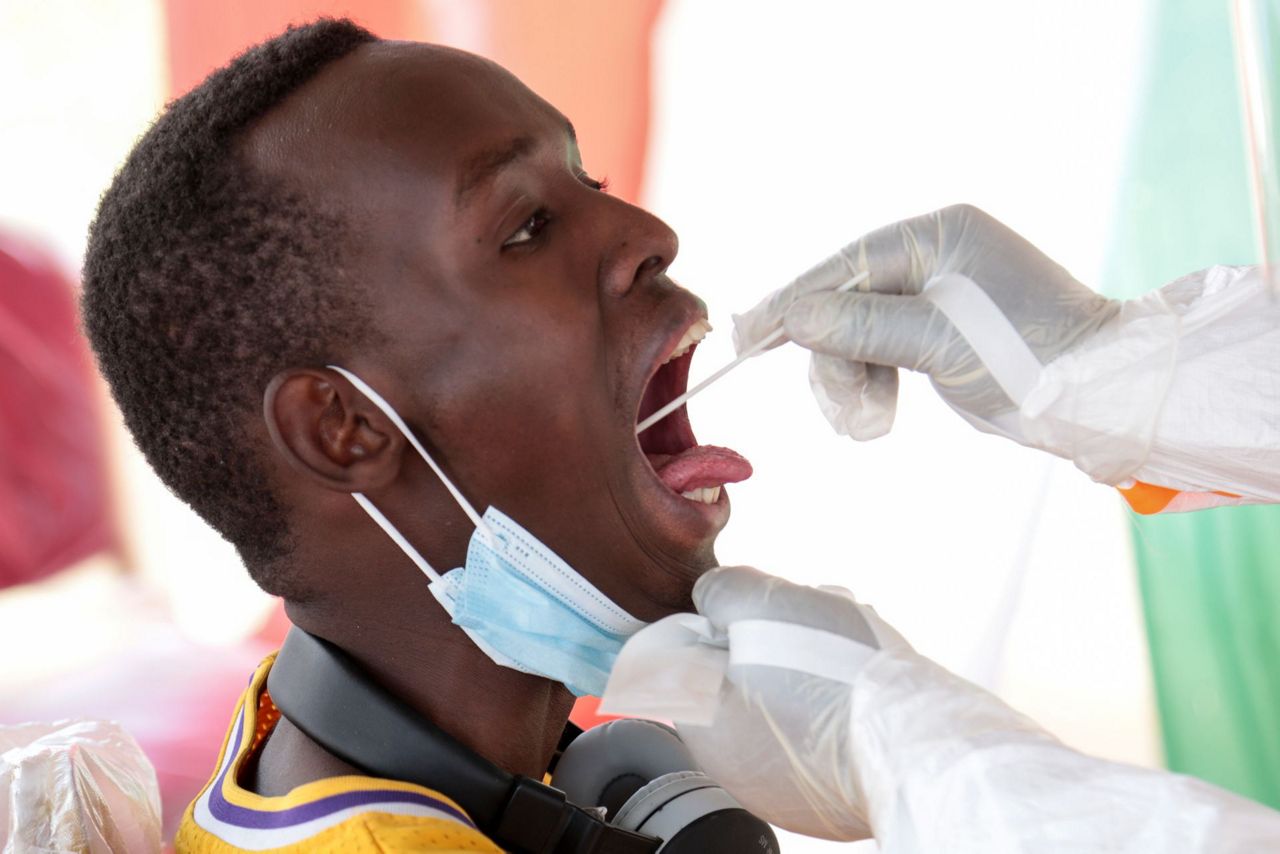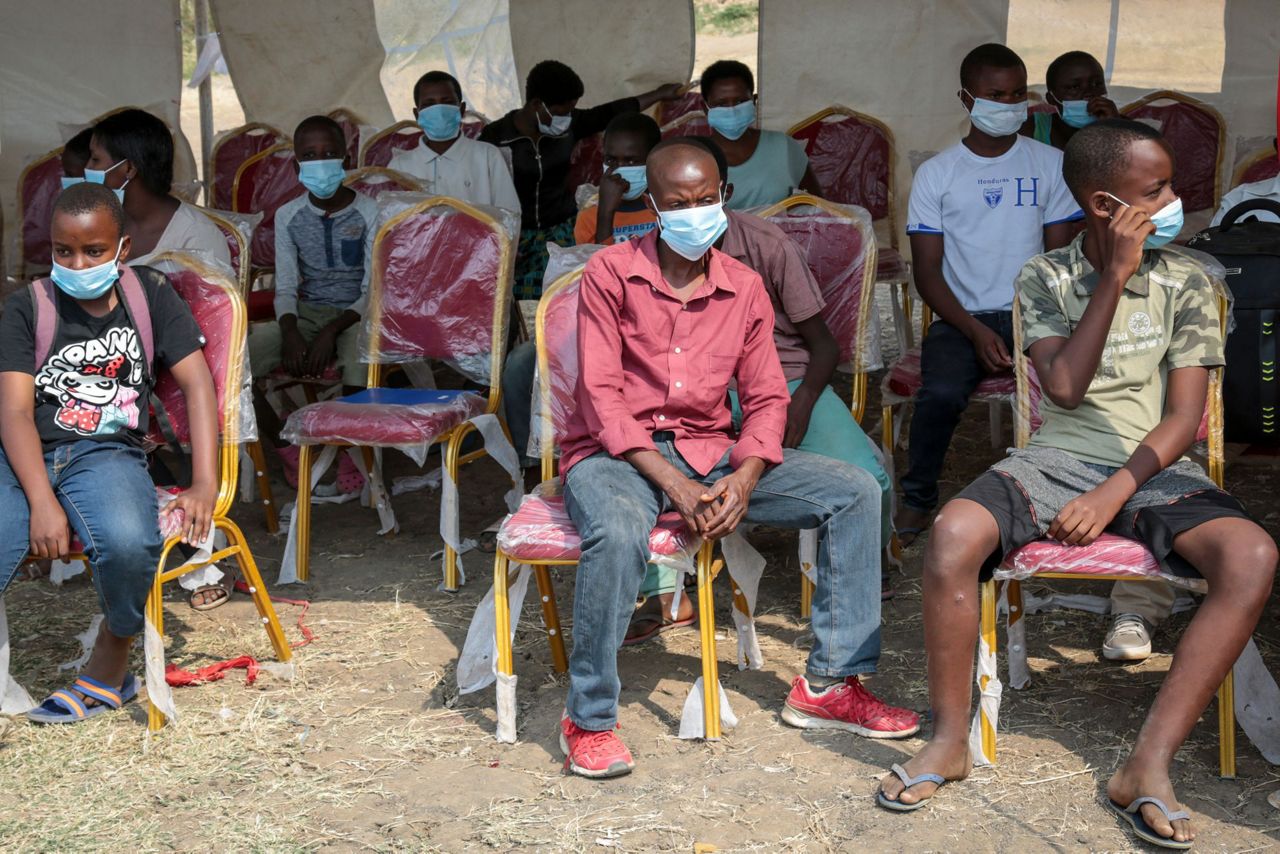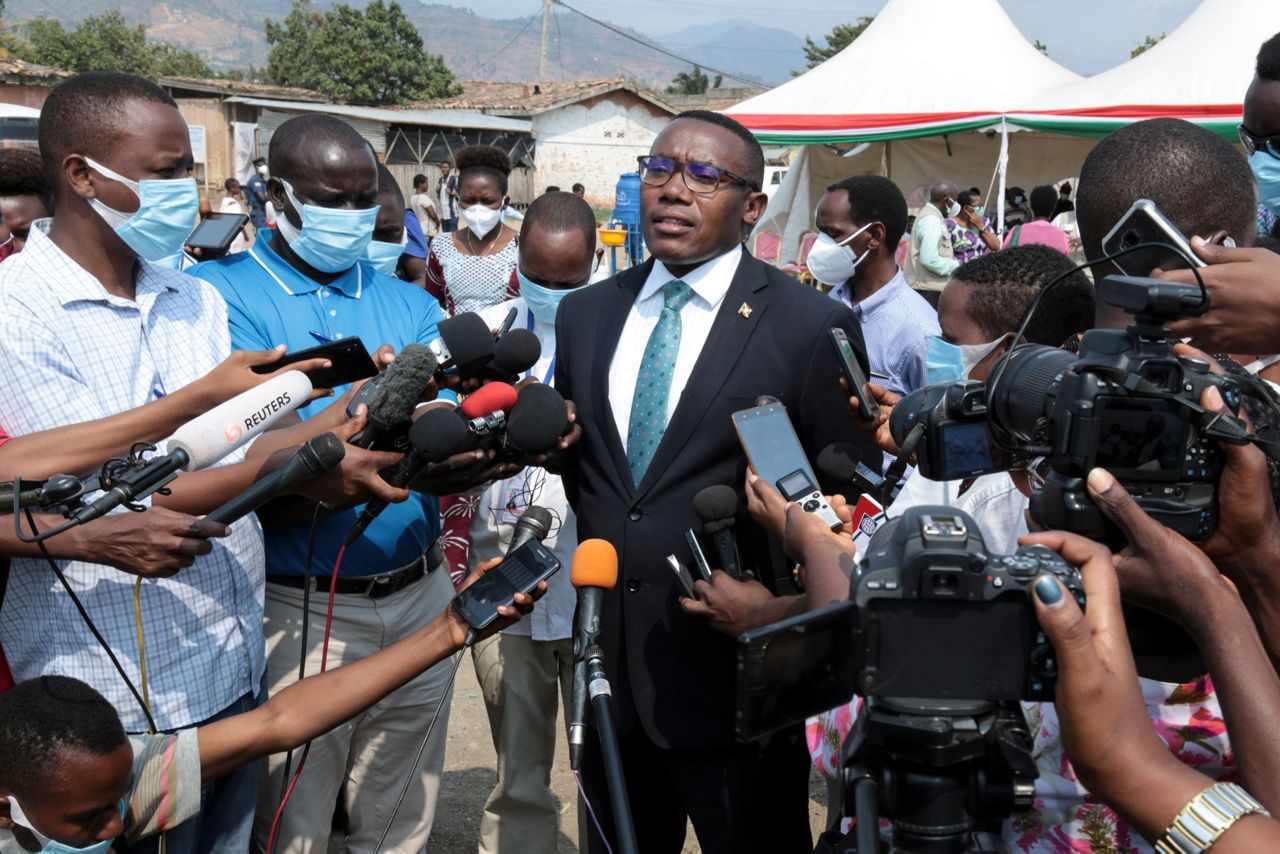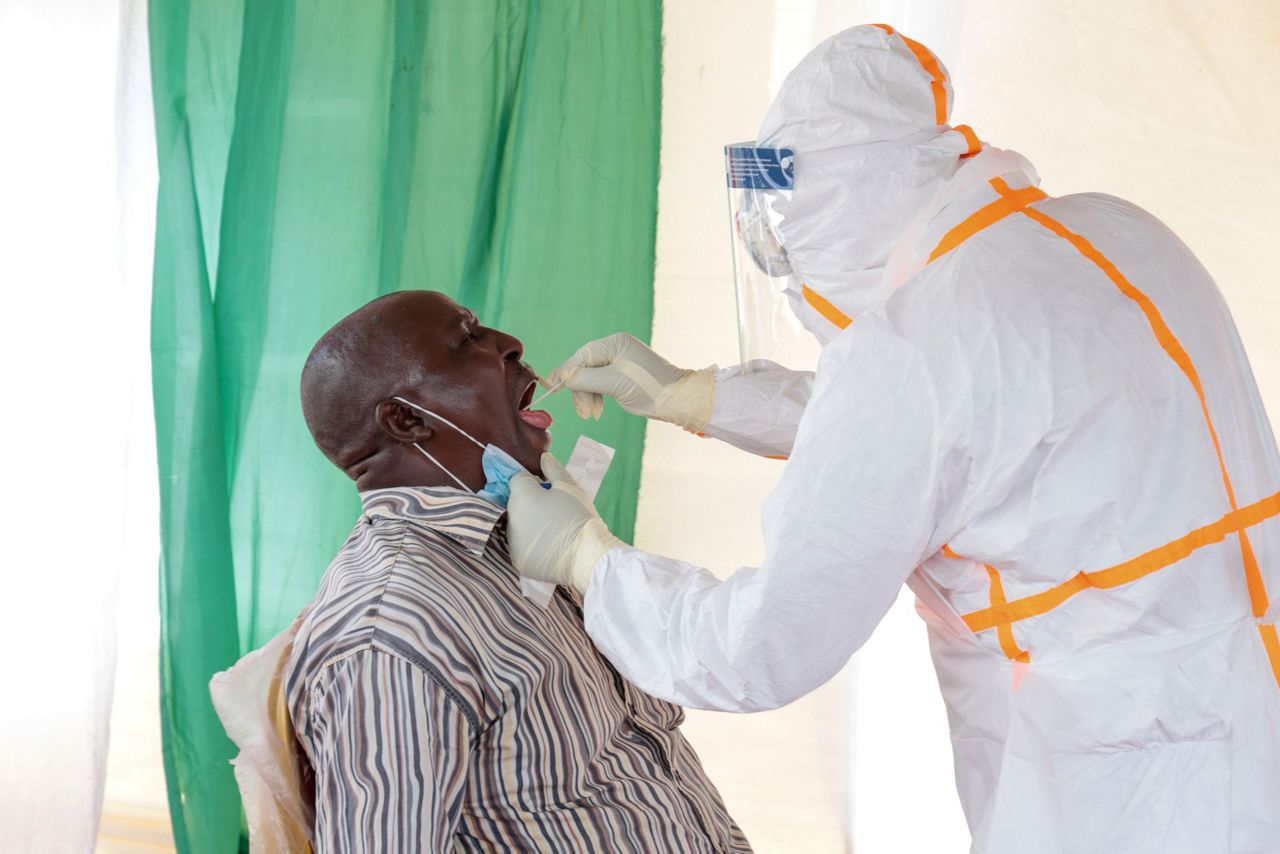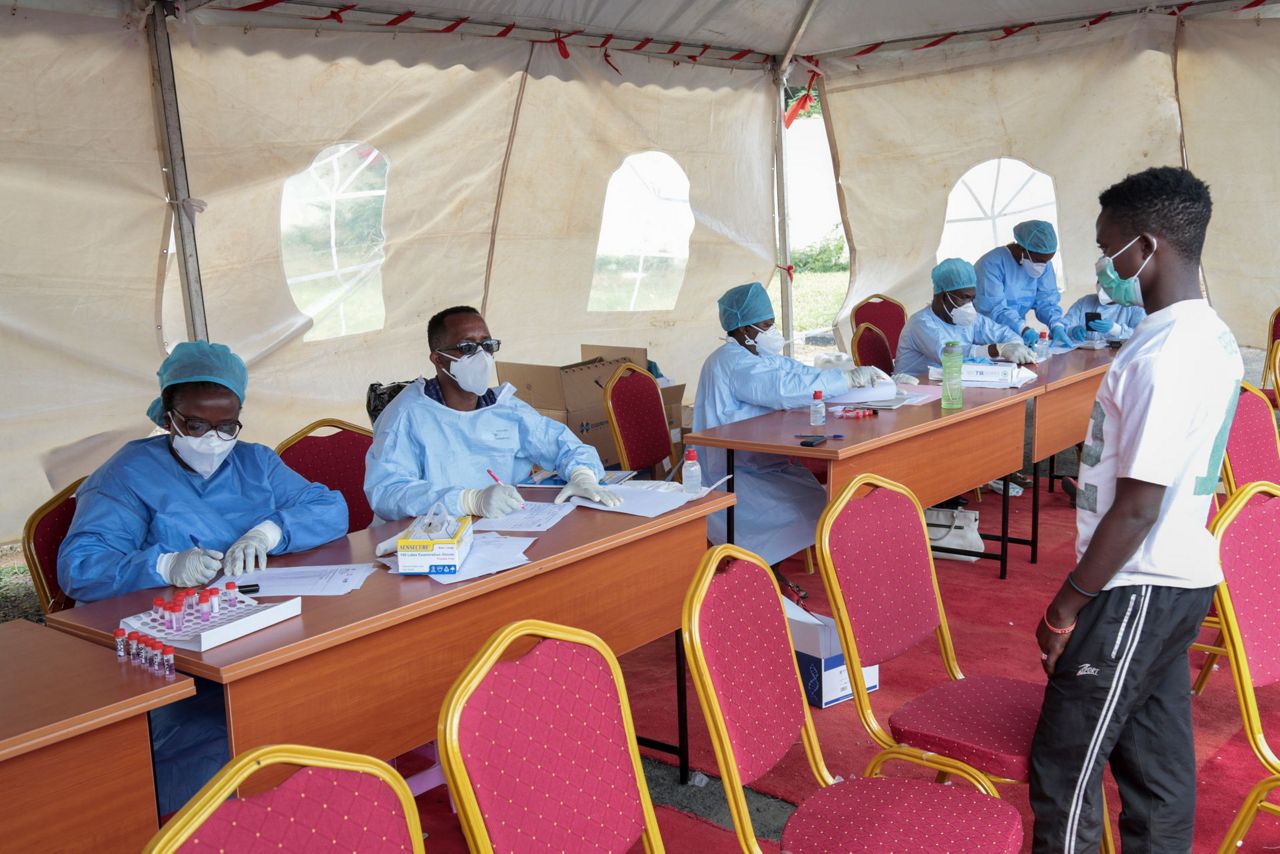NAIROBI,Kenya (AP) — Burundi launched a campaign of mass screening for COVID-19 on Monday, indicating that the new president is changing policies to more assertively combat the spread of the disease.
Named “I won’t get infected and propagate COVID-19,” in the Kirundi language, the new program was launched in three centers in the north, center and south of Bujumbura, the East African country's largest city.
Scores of Bujumbura residents, including students, wore masks as they participated in the screening.
Launching the screening scheme, Health Minister Thaddee Ndikumana said the government is determined to fight the spread of COVID-19.
“With this campaign we are working to provide access to screening for those people could not in the past and we feel that now is the time that we can work together on this problem," he said. "This is the wish of the government.”
Burundi has reported 191 confirmed cases of COVID-19, according to the Africa Centers for Disease Control and Prevention.
Previous President Pierre Nkurunziza, who died last month of what the government called a heart attack, had been criticized for not taking the pandemic seriously. He expressed the belief that divine protection would largely suffice for protection against COVID-19, allowed large campaign rallies ahead of the presidential election in May and kicked out the World Health Organization’s country director for criticizing the government's response to the disease.
Some countries and human rights groups have expressed hope that the new President Evariste Ndayisimiye, an ally of Nkurunziza, would chart a new path to fight the disease, but there was little sign of face masks or social distancing at Ndayishimiye’s swearing-in three weeks ago.
But last week, while swearing in new Cabinet ministers, Ndayishimiye surprised many when he declared Covid-19 as “the worst enemy of Burundi” and announced preventive measures against the disease including mass screening wherever they are cases and reducing the price of soap and water.
The screening program launched Monday indicates that Ndayishimiye is indeed taking the threat of the disease more seriously. The health minister issued stronger guidelines, saying that people visiting patients at hospitals must “be supplied with masks and health personnel be equipped with protective masks.” He also said that taxi drivers should clean seats and that passengers should wear masks.
He said, however, that the country will not participate in vaccine trials. “Burundi cannot accept that its people constitute a sample of experimentation,” he said.
Health workers in Burundi have warned that the coronavirus is more serious there than the government admits, Human Rights Watch said last month.
Several workers spoke anonymously to the group, alleging that the National Institute for Public Health is refusing to conduct virus tests or properly inform the public on the extent of infections. They also alleged that a national hotline for COVID-19 often goes unanswered, and that supervisors tell them to keep quiet about shortages of medical equipment.
Copyright 2020 The Associated Press. All rights reserved. This material may not be published, broadcast, rewritten or redistributed without permission.



